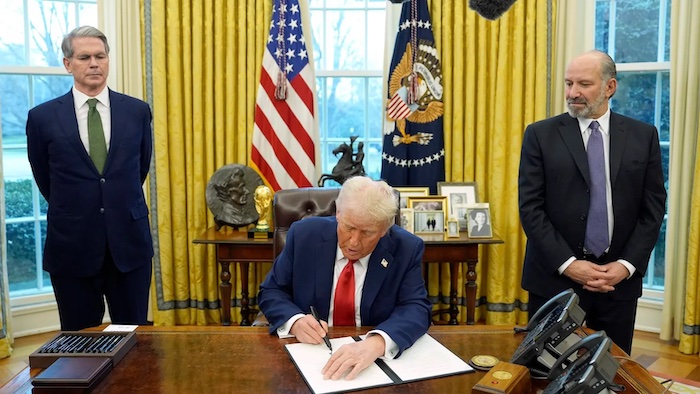
Trump Issues an Executive Order Voter ID requirements are causing legal issues
Trump’s executive order restricting mail-in ballots, requiring proof of citizenship, and requiring voter ID has sparked legal challenges.
An executive order released by US President Donald Trump aims to reform federal elections by limiting when states can accept mail-in ballots and asking voters to provide evidence of citizenship.
“Preserving and Protecting the Integrity of American Elections” is the title of the order that was signed Tuesday at the White House. Trump, who has repeatedly asserted without supporting data that voter fraud is a serious problem, said the action was required to protect the electoral process.
“Fraud in elections. The term is familiar to you. I hope we’re going to finish it. During the signing, Trump stated, “At least this will go a long way toward ending it.”
Millions of Americans who do not have easy access to legal documents verifying their citizenship, such passports or improved driver’s licenses, may lose their right to vote as a result of the decision, according to experts. Additionally, they point out that since U.S. elections are mostly controlled by individual states, it is uncertain how enforceable the executive move will be.
The injunction will probably be challenged in court, according to Wendy Weiser of New York University’s Brennan Center for Justice. “A law passed by Congress that specifies what is needed to register to vote on the federal voter registration form cannot be overridden by the president,” she told the Washington Post.
Rick Hasen, a law professor at UCLA, shared those worries, cautioning that the ruling would “radically shift power to the federal government” if it were upheld.
Although it is already unlawful for non-citizens to vote under federal law, the presidential order requires states to require evidence of citizenship for voter registration. The existing national voter registration form already compels applicants to verify their citizenship under pain of perjury, and the Illegal Immigration Reform and Immigrant Responsibility Act of 1996 forbids non-citizens from voting in federal elections.
Additionally, the directive aims to prevent states from accepting ballots sent in by mail after election day. At the moment, ballots that were mailed by election day but arrived later can still be counted in 18 states. States that do not comply risk losing federal funds, according to the new order.
Voting rights organizations and Democrats have denounced the action, claiming that minority and low-income neighborhoods have been disproportionately impacted by previous voter ID measures. They also note the failure of earlier attempts to get Congress to enact comparable limitations.
Trump has asserted repeatedly—without supporting data—that voter fraud impacted previous elections. He has maintained that his loss to Joe Biden in the 2020 election was not legitimate and has implied that “millions” of unauthorized immigrants cast ballots in 2016.
All Categories
Recent Posts
Tags
+13162306000
zoneyetu@yahoo.com



